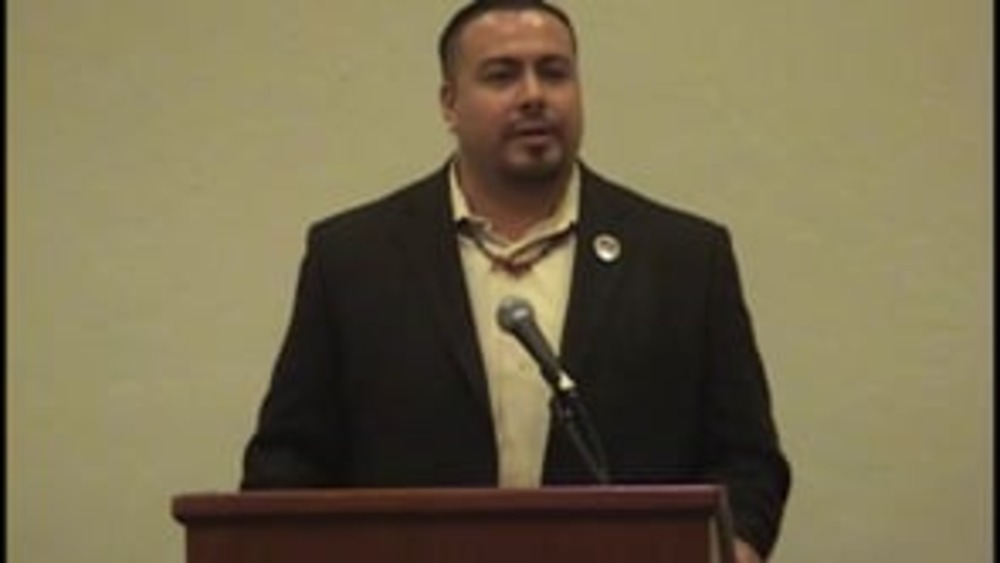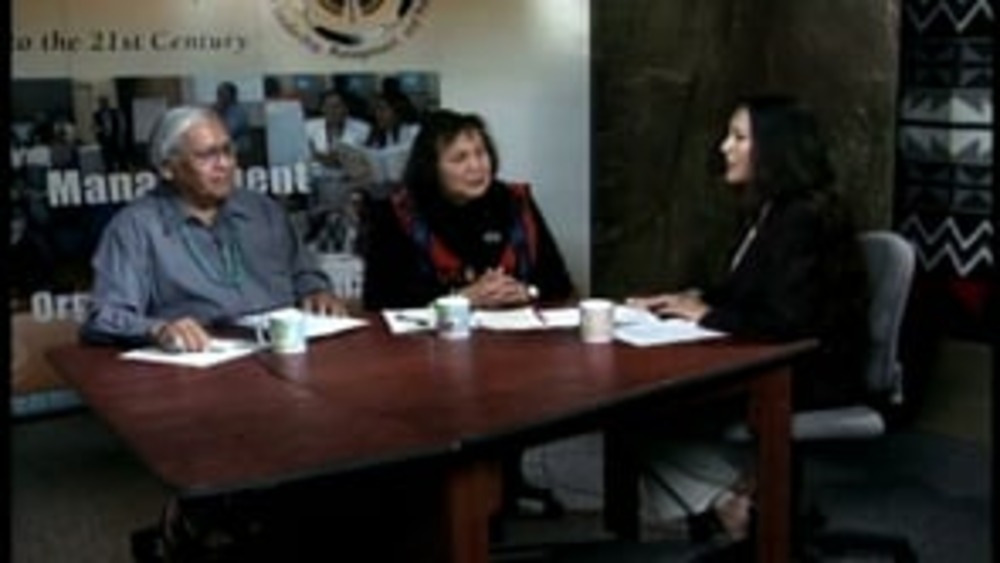NNI Executive Director Joan Timeche stresses the importance of Native nations having strategic clarity in the development and operation of effective bureaucracies.
Additional Information
Timeche, Joan. "Strategic Clarity." Native Nations Institute for Leadership, Management, and Policy. University of Arizona. Tucson, Arizona. 2013. Lecture.
Transcript
"Some of the key considerations that you need to look into. One of them is...the first one is strategic clarity and this all goes back to you as an individual citizen of your nation, of your community, and wondering, 'I'm a citizen of this nation, but what's ahead [on] the road for our nation?' It's tribal governments assuming that responsibility to figure out 'What do I want, what kind of a society do I want for my grandchildren, for my great grandchildren?' And if you're young enough, for myself, 'Is this the community that I want to come live and work and play in? Or...as soon as I finish a degree I'm going to jump ship and I'm going to go off the reservation. What do I want...what kinds of things do I want to change within my community that I wish would be there, to what kinds of things [do] I want to...want to make sure I protect?' Like for Hopi, it's things like our culture, our religion, our language are these kinds of things that we want to still be in place. Last summer we were working with some youth from...Native youth from New Mexico, and what you heard from them most when we asked them this question is they wanted to have a safe community within...wherever it is, wherever they lived. They wanted to be able to...one example is, and it's done out of Hopi and I know it's done a lot in the Pueblo communities is, as you're driving across the rez, usually you'll wave to people. You may not know them personally or may not recognize that person who's zipping by you, but you wave to the person to recognize that you're a part of the community and they're a part of the community, too. You want to be able to have this home environment that we're all a part of this group, and this is something that we want. They wanted to feel safe within the community.
Some of the things that can happen if you don't have that strategic clarity is you're gonna...what you'll end up having are employees who don't know, who have a lack of direction, who don't know where their program should be headed, who don't know why, what their role, what their job is supposed to be doing or even why they come to work. I know a lot of people that did that at my tribe and I know people today too, not just at the tribal government but anywhere, people who just come to work, clock in, do the work, hang around, do some work, end of the day right at five o'clock, clock out and they're gone. To them it's just a job, it's just a paycheck. But what you want to do is be able to make sure that those people coming in clearly understand what it is that you're about, understanding what role they play, even down to the secretary. The other is if you don't have this strategic clarity about where you're headed as a nation, then you're going to continue to support that kind of behavior. One example of this is with the Cherokee Nation of Oklahoma. What they did is they said, 'We are going to make it mandatory for every single employee who comes to work for us, whether they're Cherokee or not, to go through a 40-hour course and it's equivalent to a college course,' and they learn all about Cherokee history from its beginning to its dealings with the federal government, all of their treaty making and so on, but they have to also pass this course 'cause what they're wanting to do is make sure that every individual knows the history, all the trials that the nation had to go through, understands why it made the decisions it did in the past to where it is that they're moving towards, because they want to have every employee on board with them as they move and work towards their future. They share with them not only the history, but also the present. What are our future goals and what are our expectations of you as a citizen of the nation as well as an employee of ours? So that if you're a non-tribal citizen and you're working for them and you go and meet with others on our behalf as our employee, we want you to be as well versed as any one of our citizens, because you're representing us out there in the community. And all of you will have to do that...all of us have to do that at one point or another. When we work for someone else, we have to be able to know enough about our employer and about its purpose, its goals, to be able to do our job effectively and we should want to know those kinds of things as well."


